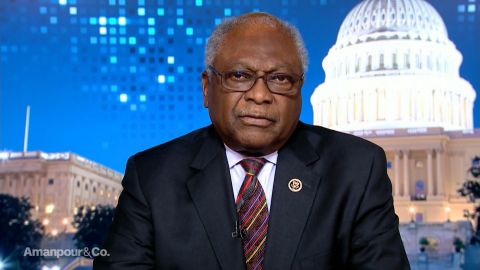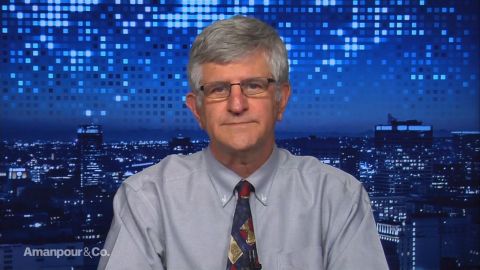Read Transcript EXPAND
CHRISTIANE AMANPOUR: So, of course, everybody is wanting to know when, how, what, and, you know, uncertainty seems to be the rule of the day. What, though, can you tell me about what the WHO is saying? By not labeling it a pandemic yet, it is talking about containment. So, it still believes that with the right practices, this can be contained. What do you think?
DR. PAUL OFFIT, PROFESSOR OF VACCINOLOGY, UNIVERSITY OF PENNSYLVANIA: I think that’s optimistic. I think you can assume that this virus will be very similar to influenza virus, which is to say that it has similar symptoms, it has a similar mechanism of spread, it has a somewhat higher mortality rate, but not dramatically higher. And it’s very hard to contain influenza virus, and I think for the same reason it will be hard to contain this virus. Once it’s in the community, once there’s spread from people who are relatively asymptomatic or have very mild disease, I think it’s very hard to contain. But I think the good news is that it’s very unlikely to be any more damaging than influenza virus is. I can’t imagine, frankly, that it would cause one-tenth of the damage that influenza causes every year in the United States.
AMANPOUR: OK. That’s really interesting. You cannot imagine that it will cause one-tenth of the damage. How do you make that assessment, that is potentially a tenth less deadly or damaging than the regular flu epidemic every year?
OFFIT: Well, the flu epidemic seems to be grandfathered in as OK. I mean, this year in the United States, so far, the CDC estimates that as of February 22nd we’ve had between 300,000 and 500,000 hospitalizations caused by influenza. And this year in the United States, we’ve had between 18,000 and 46,000 deaths from influenza. It’s March — it’s early March, we have two deaths from this novel coronavirus so far in the United States. I would be very surprised if this virus were able to catch up to the devastation that influenza virus causes.
About This Episode EXPAND
Vaccinology expert Dr. Paul Offit breaks down the consequences of the coronavirus. Vaccinology expert Dr. Paul Offit explains the consequences of the coronavirus and why it will be hard to contain. U.N. ambassador Adela Raz explains negotiations between the Afghan government and the Taliban. Deputy Chief of the U.S. Border Patrol Raul Ortiz discusses immigration policy with Walter Isaacson.
LEARN MORE



